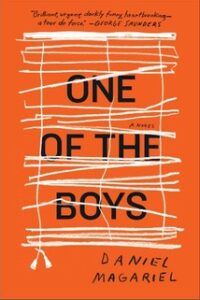The Father-Son Talk

I was twelve years old. My father and I were on the train, traveling from our home on Long Island to the city, where he was teaching a course in speed reading that I was taking. It was about eight a.m. Which meant the train was full of people, almost exclusively men in suits. What motivated him to do it then and there I will never understand, but it was on that train ride on that morning that my father, the professor, decided to give his eldest boy the father-son talk.
I only heard the first sentence. It was articulated clearly in his pansophic voice. “Mark. Are you aware that there are actually two biological functions for your penis?”
Every other thought or conversation happening in that train car at that moment came to a screeching halt. I was acutely aware that everyone within earshot was focused on us. For them, I’m sure, my father’s lecture was going to be touching and amusing. For me, it was an absolute adolescent nightmare.
I have no recollection of what happened after that. I could not even tell you whether my father continued his biological treatise. I know only that I would have given anything, even my life, if I could have disappeared.
When my boys reached that age, I was reluctant to put them through the same sort of trauma. So, when K told me it was time for the father-son talk, I balked. “I don’t think they want to have that conversation,” I said. “And anyway, they probably know everything already.”
K disagreed. This was a parental duty, she explained. One of the few that I could do better than she. I was always a sucker for that kind of puffery. So, I agreed. But when it came time for the talk, I eschewed my father’s formal approach. I kept the talks short and sweet.
They went something like this:
Me: I think we should have a talk.
Son: What? Is this going to be the talk about sex?
Me: Well, sort of.
Son: Forget it, Dad. I probably know more than you do.
Me: Yes, you probably do.
Son (smiling): Did Mom put you up to this?
Me (frowning): That’s not the point.
Son (laughing): It’s okay, Dad. Consider the conversation complete. You can assure her that I know what I need to know. You did your job. We had the conversation.
Me: I did? We did?
Son (still laughing): Yes, we did.
Me (clearing my throat): Okay, then. Great! Well, I’m glad we were able to discuss it.
That was then. This is now. In six or seven years, my eldest grandson will be old enough to have the father-son talk with his dad, our second son. But the world is a very different place today. Back then, it was relatively simple. And naïve.
So, when Number Two Son has that conversation, I can only wonder how it will go. Hopefully, not like this…



